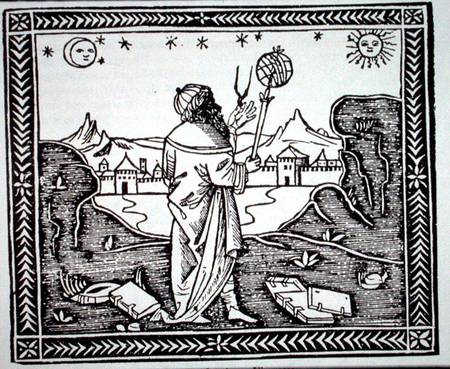Guillaume de Machaut (c.1300-1377) was a classical composer and poet—in fact, one of the last poets who also composed music—and a part of the ars nova ["new technique"] movement which embraced polyphony. His name suggests that he was born in Machault, east of Rheims in France, but it is clear that he spent most of his life in Rheims. Unlike many non-royal figures of his age, his popularity has ensured that we possess a remarkable amount of biographical information about him.
As a young man, he was a secretary to the ing of Bohemia, John I. He was named a canon of Verdun, then Arras, then Rheims; by 1340 he had given up the other positions and was a canon of Rheims only. As a canon, attached to the cathedral in Rheims and living without private wealth, he could devote himself to composing poetry and music. In all, we have about 400 pieces in various forms.
He lost his first patron, King John of Bohemia, when John died at the Battle of Crécy in 1346 during the Hundred Years War. Machaut found support from John's daughter. When she died during the Black Death, he found support from her sons, Jean de Berry and CharlesV, Duke of Normandy.
In the next phase of the Hundred Years War, Geoffrey Chaucer (likely still a teenager at the time) was in the retinue of Prince Lionel as a valet. During the siege of Rheims in early 1360, Rheims rallied and captured the besiegers. Chaucer was taken prisoner. This would not have involved being thrown in dungeons and experiencing deprivation. The practice at the time was to capture as many high-ranking opponents as possible in order to gain money from ransoms. (Chaucer was ransomed for £16 in March.) The English would have likely experienced a mild form of "house arrest" which would have allowed them a certain amount of freedom. Chaucer would have had ample opportunity to visit Machaut.
Did he? We cannot be sure. Chaucer's poetry rarely offers attribution for his influences, but he was certainly intimately familiar with Machaut's work. Scholars have found numerous influences in Chaucer's writing. Chaucer scholar James I. Wimsatt has referred to "Guillaume de Machaut, who among fourteenth-century French poets exerted by far the most important influence on Chaucer."[link] Even long before he himself began writing, he was in a court that valued and supported the arts and poetry. Machaut was enormously popular in his own lifetime, and it seems inconceivable that Machaut would not have been sought out by several of the English who would have appreciated his reputation.
For a sample of his musical composition:








